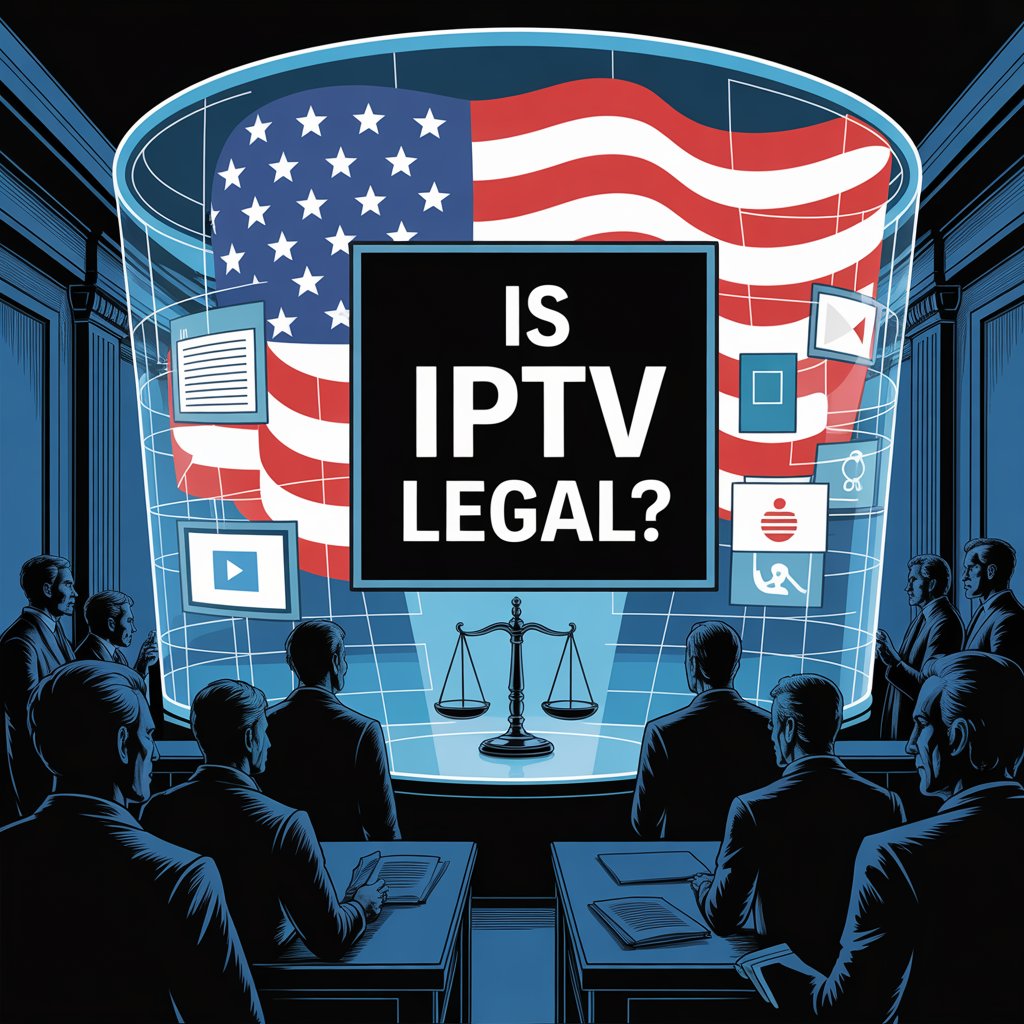is iptv legal

- Yes, IPTV Can Be Legal
Many people ask, “Is IPTV legal?”, and the answer is yes — when used through authorized providers, IPTV is completely legal. Licensed IPTV services operate just like traditional broadcasters, acquiring the rights to distribute channels, shows, and movies. These legitimate services adhere to broadcasting regulations and offer paid subscriptions for their content, safeguarding both viewers and content creators.
The existence of illegal services that stream copyrighted content without permission frequently contributes to the ambiguity surrounding the question “Is IPTV legal?” Despite their professional appearance, these platforms lack the legal authority to distribute the shows they offer. In contrast, legal IPTV services are often listed on official app stores, have partnerships with networks, and provide transparent terms of service.
Therefore, when pondering the question “Is IPTV legal?” it is essential to examine the source. Legal IPTV platforms provide customer support, consistent service, and peace of mind. The risks associated with illegal IPTV, such as service interruptions, fines, and malware, are eliminated for users who select legal providers. Because of this, knowing the answer to the question “Is IPTV legal?” enables individuals to make viewing decisions that are safe and informed.
- Illegal IPTV Exists Too
While many IPTV services operate legally, there are also unlicensed providers who stream content. These services often offer hundreds of premium channels and movies at extremely low prices, which can seem appealing to new users. However, they do not have the legal rights to distribute that content, making their operations unauthorized and illegal. Many people ask, “Is IPTV legal?” as a result. The answer depends entirely on the provider and whether they follow copyright and broadcasting laws.
Users of illegal IPTV services run the risk of being infected with malware, experiencing abrupt shutdowns, and facing legal repercussions. Authorities in many countries have started cracking down on illegal streaming platforms, targeting both providers and users. As a result, before signing up for any IPTV service, thorough verification is essential. When asking, Is IPTV legal, users should remember that only licensed services offering content with proper rights can be considered safe and legal to use
- How to Identify Legal IPTV
With the growing popularity of online streaming, many users find themselves asking, Is IPTV legal The answer is completely dependent on whether the IPTV service has the appropriate broadcasting licenses for the content it provides. Legal IPTV providers operate within copyright laws and pay for the rights to distribute channels, movies, and shows. These services are often affiliated with well-known networks and are available on official app stores like Google Play or the Apple App Store.
Users should look for evidence of legitimacy when answering the question “Is IPTV legal” A legal IPTV service will clearly list its pricing, terms of service, and contact information on its website. It will not promise “all premium channels for free” or ask users to sideload sketchy apps. It is likely operating in compliance with the law if the service provides safe payment options, provides free trials, and receives favorable feedback from reliable sources. If the offer seems too good to be true, always exercise caution.
Asking Is IPTV legal is a smart first step before subscribing to any service. Remember, using illegal IPTV can lead to malware risks, service shutdowns, or even legal action in some countries. So before you commit, do your research and make sure the provider is transparent and compliant. By staying informed and repeatedly questioning Is IPTV legal, you can enjoy safe and reliable streaming without worries.
- User Responsibility
1-Awareness of Legality : Users must be aware of whether the service they are using is authorized. Asking “Is IPTV legal” helps guide users to evaluate the legitimacy of the platform and avoid illegal content.
2-Research and Verification : Users should investigate the IPTV provider prior to signing up, verify that the service has the appropriate licensing, and ensure that its operations are transparent. It is essential to verify pricing, official partnerships, and app availability.
3-Avoiding Suspicious Offers: Deals offering all premium content for an unusually low price should raise red flags. These frequently indicate illegal services that carry significant risks.
4-Legal Consequences : The choice of what to watch is shared by all users. Using illegal IPTV could result in fines, blocked access, or legal trouble—hence the importance of asking, “Is IPTV legal” before signing up.
5-Supporting Content Creators : Choosing legal IPTV services ensures that broadcasters, creators, and distributors are fairly compensated, helping to sustain the content industry.
- Consequences of Illegal IPTV Use
Despite the low costs and ease of access, using illegal IPTV services carries a lot of risks. The lack of appropriate broadcasting rights on these platforms can result in abrupt service interruptions, subpar video quality, or even malware exposure. Many people ask, “Is IPTV legal” because legality is key to safety and reliability. Using unauthorized IPTV can also result in legal penalties, such as fines or other actions in some countries. Therefore, it’s important to always verify the provider’s legitimacy and ask the crucial question: “Is IPTV legal” before signing up.
